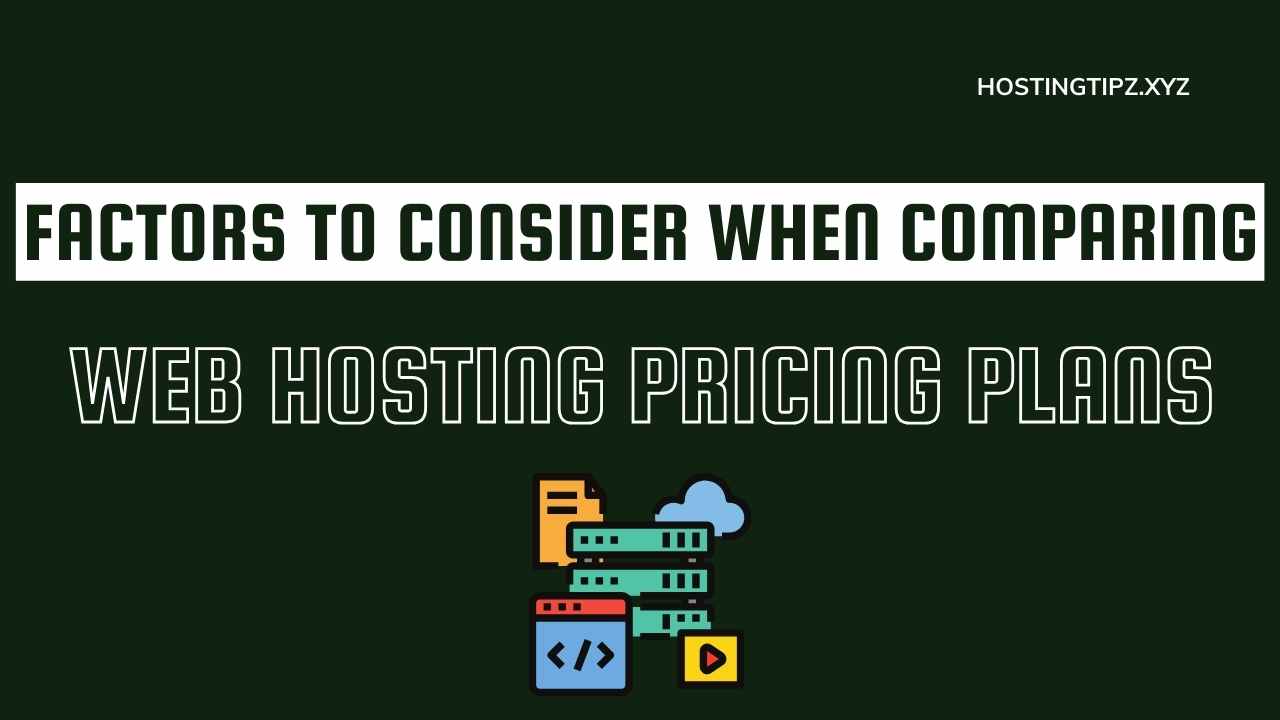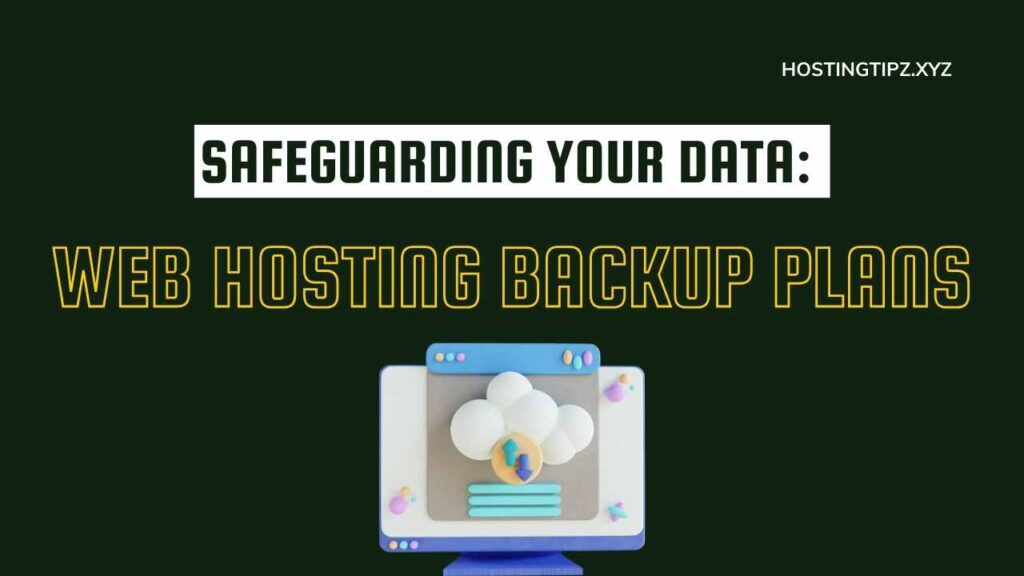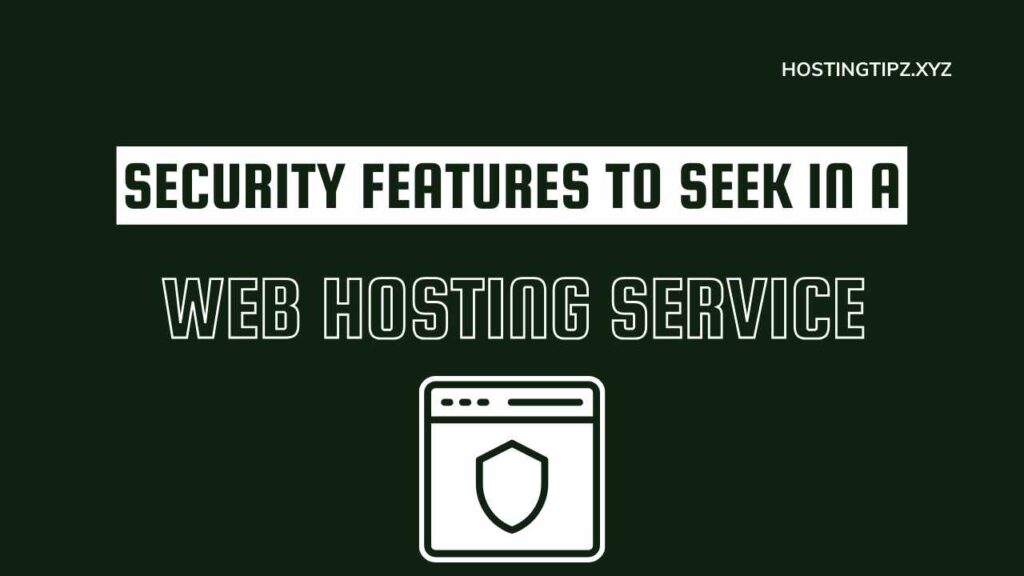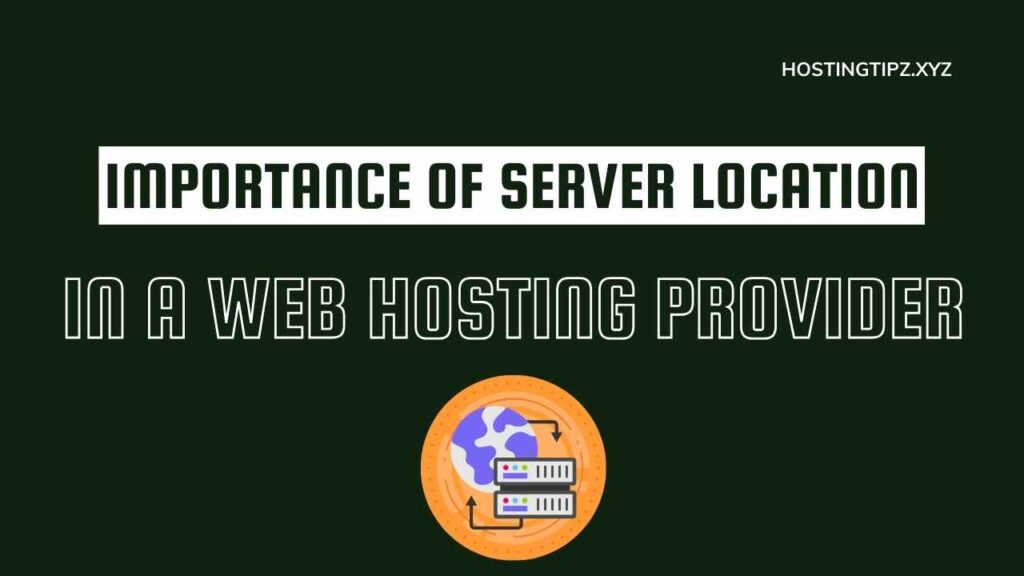When selecting a web hosting provider, the pricing aspect holds significant importance and deserves careful consideration. However, it’s crucial to look beyond the price tag and evaluate the overall value and features offered by different hosting plans.
This article aims to guide you through the factors to consider when comparing web hosting pricing plans. By comprehending these elements, you can arrive at a well-informed choice that corresponds to the requirements and financial resources of your website, all while guaranteeing excellent performance and dependability.
Table of Contents
1. Hosting Package Features:
A. Resource Allocation:
Evaluate the allocated disk space, bandwidth, and server resources offered by each hosting plan. Ensure that the package provides sufficient resources to support your website’s growth and accommodate your expected traffic levels.
B. Number of Domains and Email Accounts:
Consider the number of domains and email accounts allowed within the hosting plan. This is especially important if you plan to host multiple websites or require personalized email addresses for your business.
2. Performance and Uptime Guarantees:
A. Server Reliability:
Look for hosting providers that offer robust server infrastructure and have a reputation for high uptime. A reliable hosting service ensures that your website remains accessible to visitors consistently, minimizing downtime.
B. Speed and Performance Optimization:
Check if the hosting provider offers performance optimization features such as caching mechanisms, content delivery networks (CDNs), and server-level optimizations. These features can significantly enhance your website’s loading speed and overall performance.
3. Customer Support and Technical Assistance:
A. Availability and Responsiveness:
Evaluate the customer support channels (live chat, email, phone) and their availability (24/7 or specific hours). Consider the average response times and the reputation for providing prompt and helpful assistance.
B. Knowledge Base and Documentation:
Determine if the hosting provider offers comprehensive documentation, tutorials, and a knowledge base. These resources can be valuable references for troubleshooting common issues and learning about advanced features.
4. Scalability and Upgrades:
A. Growth Flexibility:
Assess if the hosting plans allow easy scalability to accommodate future growth. Look for options to upgrade resources or move to higher-tier plans seamlessly as your website’s needs expand.
B. Additional Services and Add-ons:
Consider any additional services or add-ons provided by the hosting provider, such as SSL certificates, website backups, security features, or website builders. These can add value to your hosting plan and save you from additional expenses.
5. Renewal Pricing and Long-Term Contracts:
A. Introductory vs. Renewal Prices:
Pay attention to any introductory pricing offers and understand the renewal prices for the hosting plans. Some providers offer discounted rates for the initial term but increase the prices upon renewal.
B. Contract Length and Flexibility:
Evaluate the contract length options, such as monthly, yearly, or longer-term commitments. Consider your flexibility needs and ensure you are comfortable with the chosen contract length.
6. Reputation and Reviews:
A. User Reviews and Feedback:
Research and read reviews from existing customers to gauge their experiences with the hosting provider. Look for overall satisfaction, reliability, and customer support feedback.
B. Company Reputation and Industry Standing:
Assess the hosting provider’s reputation and industry standing. Look for established companies with a track record of providing quality hosting services and being transparent with their customers.
7. Security Measures:
A. Server Security:
Assess the security measures implemented by the hosting provider to protect your website and data from cyber threats. Look for features like firewalls, malware scanning, SSL certificates, and regular security updates.
B. Backup and Restore Options:
Check if the hosting plan includes regular backups of your website. Having automated backup and restore options can provide peace of mind in case of data loss or website errors.
8. Control Panel and User Interface:
A. Ease of Use:
Evaluate the control panel or user interface provided by the hosting provider. A user-friendly and intuitive interface makes it easier to manage your website, domains, email accounts, and other hosting-related settings.
B. Application Installations:
Determine if the hosting plan supports easy installations of popular applications like WordPress, Joomla, or Drupal. Having a one-click installation feature simplifies the process of setting up and managing your website.
9. Bandwidth and Traffic Limits:
A. Bandwidth Allocation:
Consider the allocated bandwidth limit of the hosting plan. Ensure that it can accommodate your website’s expected traffic volume without incurring additional charges or experiencing performance issues.
B. Traffic Bursting:
Check if the hosting provider offers traffic bursting or scalability features during peak traffic periods. This can prevent your website from experiencing slowdowns or downtime due to sudden traffic spikes.
Also Check: Pros and Cons of Dedicated Hosting for High-Traffic Websites
10. Money-Back Guarantee and Refund Policies:
Look for hosting providers that offer a money-back guarantee or a trial period. This allows you to test their services without long-term commitments and provides the option for a refund if you’re not satisfied.
11. Data Center Locations:
Assess the geographic locations of the hosting provider’s data centers. Opt for a provider with data centers strategically located near your target audience to ensure faster website loading times and lower latency.
12. Environmental Considerations:
If environmental sustainability is a priority for your business, consider hosting providers that operate on eco-friendly practices and use renewable energy sources to power their data centers.
13. E-commerce Capabilities:
If you plan to run an online store, check if the hosting plan includes e-commerce features such as secure payment gateways, shopping cart functionality, and SSL certificates for secure transactions.
14. Future Scalability:
Consider the hosting provider’s ability to accommodate your website’s future growth. Look for options to upgrade to higher-tier plans or dedicated hosting solutions as your business expands.
15. Reputation in Specific Niches:
If your website caters to a specific industry or niche, research hosting providers that have expertise in serving that particular niche. They may offer specialized features or support tailored to your industry’s requirements.
Conclusion:
Comparing web hosting pricing plans requires a comprehensive evaluation of multiple factors beyond cost alone. Consider the hosting package features, performance and uptime guarantees, customer support quality, scalability options, security measures, user interface, bandwidth limits, and refund policies.
Additionally, evaluate data center locations, environmental considerations, e-commerce capabilities, future scalability, and the hosting provider’s reputation within specific niches. By carefully considering these factors, you can choose a web hosting plan that not only fits your budget but also meets your website’s specific requirements for performance, reliability, security, and support.



